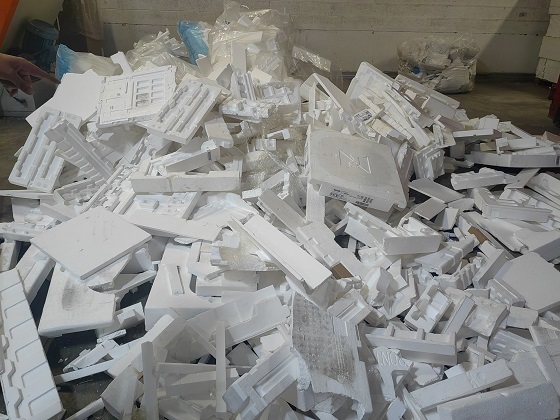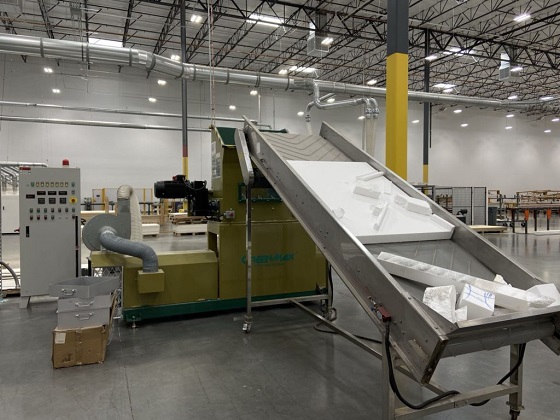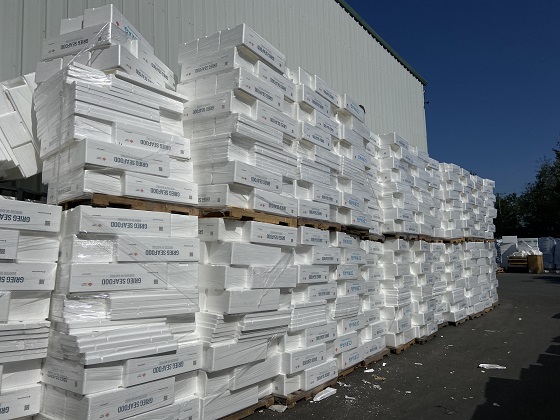The Challenges of Recycling Foam Packaging in UK
Expanded polystyrene (EPS) foam has actually proven to be an extremely valuable material, specifically in product packaging, as it has exceptional shock-absorbing qualities, which make it fantastic for protecting products en transit. It is also extremely lightweight, which minimizes transit costs and carbon emissions during transport.

Nevertheless, EPS product packaging provides a variety of challenges. A few of these include:
EPS is one of one of the most common materials found in illegally dumped waste. It is light-weight, very visible, and easily breaks down into small pieces which can be lugged by wind and water.
EPS occupies an overmuch huge space in landfill. This is because EPS is primarily air, and has exceptional compressive strength so it does not compact well (without machinery). Because of this, EPS can take up a lot of space in landfill, which can lead to higher costs for local councils and businesses.
EPS is not currently gathered with curbside recycling programs in many councils. However, the recycling options are largely fragmented at present (something we are hoping to change!).
That aside, it is a really simple material to recycle and can be recycled consistently into resourceful items, which is why we require to do everything we can to recycle foam product packaging and divert it from landfill.

What Makes Expanded Polystyrene Packaging Easy to Recycle?
Expanded polystyrene (EPS), is commonly considered reasonably easy to recycle due to a number of key properties:
# 1 Lightweight and Versatile: EPS is a light-weight and extremely versatile material, which makes it easier to recycling compared to heavier plastics.
# 2 Physical Stability: EPS has exceptional physical stability, meaning it keeps its form and physical stability also after duplicated reusing cycles. This property allows it to be recycled several times without significant degradation in quality.
# 3 Good Insulation Properties: EPS is commonly used for its excellent insulation residential properties, which keep items safe and protected during transport. These same insulation residential properties make it suitable for recycling, as it can be easily sorted and separated from various other materials during the recycling procedure.
# 4 Market Need: Recyclers favor materials with a stable and strong market need. EPS has a vast array of applications, such as packaging, insulation, and construction, bring about constant demand for recycled EPS.

How Much Polystyrene Foam is Recycled Currently?
Regrettably, the majority of expanded polystyrene foam material is not recycled at all, despite the fact that it is 100% recyclable. The United Kingdom Product packaging Convention has actually claimed that simply less than 19% of expanded polystyrene foam material is recycled in the country.
This figure is not great for an developed country, specifically when compared to other countries in Asia and Europe, which are doing a much better job.
Japan, for instance, has an excellent recycling rate for expanded polystyrene foam material, thanks to its stable and mature recycling industry. Presently, Japan is capable of recycling about 88% of its polystyrene foam and is making strides in the direction of enhancing this figure further.
Coming in on the same level with Japan's excellent numbers are a number of European countries, such as the France, Belgium, Finland and Italy. Denmark leads the charge as the best recycler of expanded polystyrene foam material, flaunting an admirable 95% recycling rate.
Things We Need to Get Over to Increase Expanded Polystyrene Recycling
Lack of Awareness
One of the biggest obstacles to get over with recycling expanded polystyrene foam product packaging is awareness. Raising recycling awareness is essential because there are still remarkably many people around that do not realise the importance of recycling or exactly how to do it. Moreover, many people think that expanded polystyrene is not recyclable at all since the interaction from a lot of councils is to deal with it in the rubbish bin to prevent contamination in the recycling stream given EPS can not be placed in the kerbside plastics bin.
Enlightening the general populace concerning the recyclability of this material and the importance of proper disposal is critical. Both personal and public stakeholders are required to put in every effort to inform even more people regarding collection points and recycling alternatives, which can encourage better participation in recycling programs.
Fragmentation of Recycling Solutions
We discussed the influence of a fragmented reusing market earlier. An absence of framework causes bad waste monitoring practices, restricted recycling facilities, decreased public awareness, poor policies, and insufficient market development. Every one of these variables add to lower plastic recycling rates and prevent progress towards a more sustainable and round approach to plastic waste.
Contact GREENMAX and help us tackle this by spreading the word that expanded polystyrene (EPS) is totally recyclable and can be turned into a source such as insulation for sustainable buildings. Take action and recycle foam packaging.
